Y5 King Midas
£3.00
KS2 National Curriculum:
✓ Predicting outcomes and exploring cause-effect in myths
✓ Inferring character traits from behaviour and consequences
✓ Working in paired roles to analyse and retell the myth
✓ Writing a modern moral myth continuation
Activities in this lesson include reading the full text of King Midas, learning about the features of a myth where someone learns a lesson, answering higher and lower order questions about King Midas, writing a tweet and writing a modern myth.
There is a five-minute evidence-based CPD activity at the end of this lesson which will develop classroom teachers’ skill set. This CPD consists of a research extract on peer assessment with a five-minute activity based on this extract.
Description
Recommended Year Group: Year 5
Focus: Exploring the moral message and character development
Skills Developed:
• Predicting outcomes and exploring cause-effect in myths
• Inferring character traits from behaviour and consequences
• Working in paired roles to analyse and retell the myth
• Writing a modern moral myth continuation
• Reading – Comprehension: Make predictions and draw inferences
• Writing – Composition: Retell or continue a myth with moral structure
• Spoken Language: Role-based partner talk
• Thinking and Learning: Metacognition, reflection, collaborative reasoning
These evidence-based learning (EBL) lessons are based on classroom practice that has been proven, by research, to maximise thinking, learning and attainment. From an extensive review of educational research, we identified the eight key classroom thinking and learning skills that were common across these research papers. We named these eight key skills “EBL skills”.
EBL skills have been proven by research to maximise learning because they combine the most productive thinking skills with the most effective learning behaviours. Each of our evidence-based learning lessons uses the English curriculum as a framework through which the eight EBL skills are delivered.
Teachers also have the opportunity to add to their own skill set or refresh their existing skills with our five-minute CPD activity, based on one of the EBL skills used in this lesson.
The skills in bold below are the EBL skills developed in this Myths lesson. Click on each skill to learn more about that skill.
- Collaboration
- Thinking Skills
- Peer Assessment
- Peer Teaching
- Self-Assessment
- Metacognition
- Self-Regulation
- Independent Learning
1 review for Y5 King Midas
Only logged in customers who have purchased this product may leave a review.
Related products
-
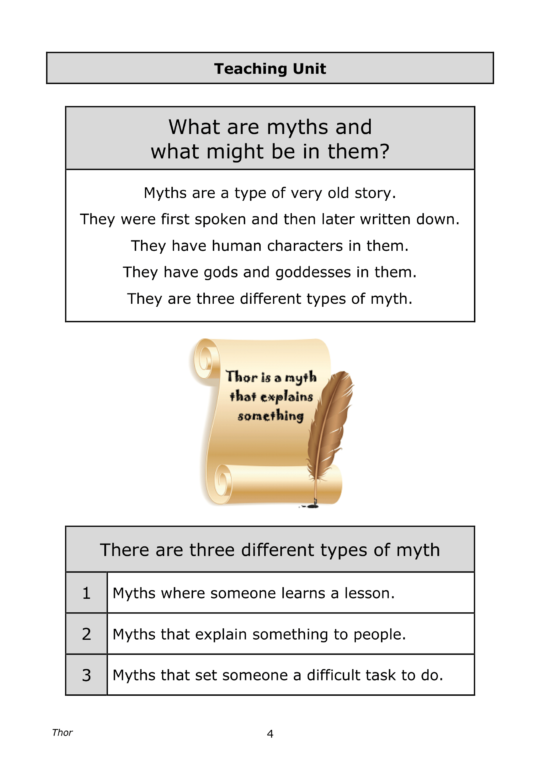
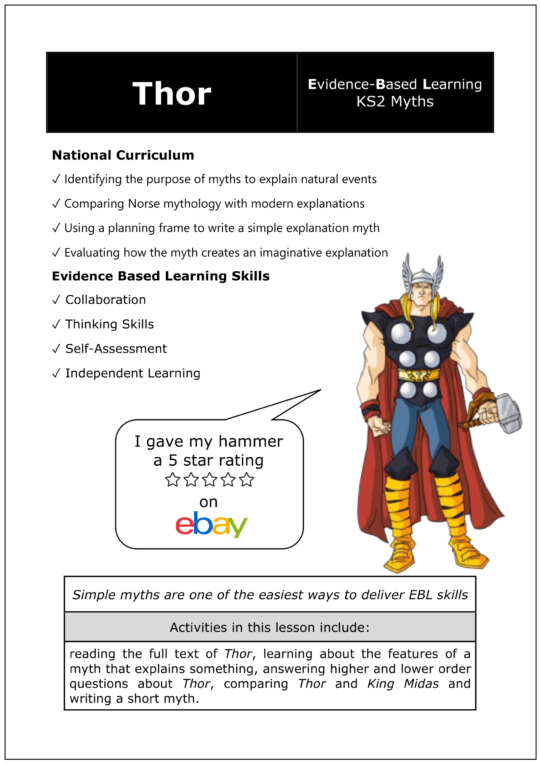
Y5 Thor
£3.00 Add to basket £3.00Add to basket
£3.00Add to basketKS2 National Curriculum:
✓ Identifying the purpose of myths to explain natural events
✓ Comparing Norse mythology with modern explanations
✓ Using a planning frame to write a simple explanation myth
✓ Evaluating how the myth creates an imaginative explanationActivities in this lesson include reading the full text of Thor, learning about the features of a myth that explains something, answering higher and lower order questions about Thor, comparing Thor and King Midas and writing a short myth.
There is a five-minute evidence-based CPD activity at the end of this lesson which will develop classroom teachers’ skill set. This CPD consists of a research extract on self-assessment with a five-minute activity based on this extract.
VIEW -
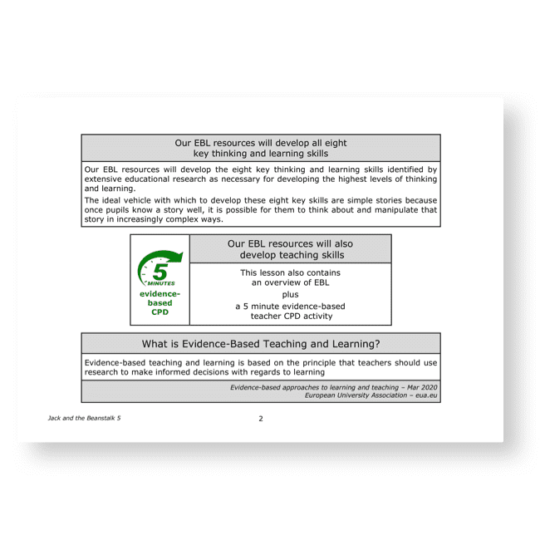
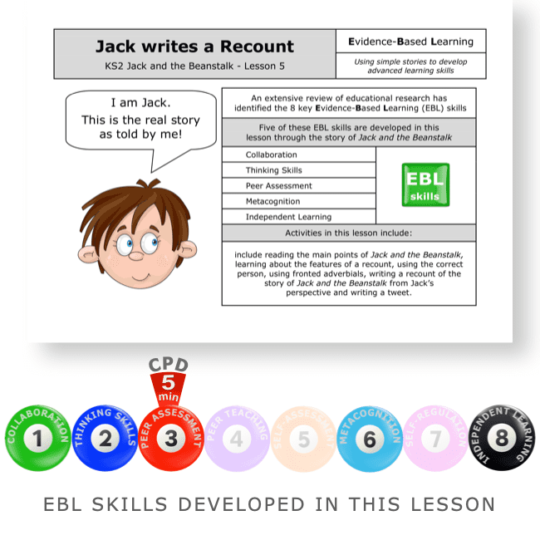
Jack writes a Recount
£3.00 Add to basket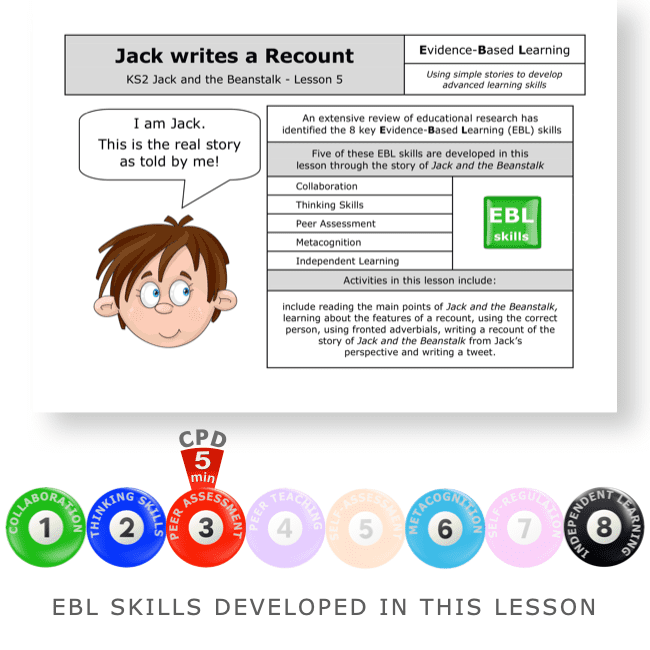 £3.00Add to basket
£3.00Add to basketActivities in this lesson include reading the main points of Jack and the Beanstalk, learning about the features of a recount, using the correct person, using fronted adverbials, writing a recount of the story of Jack and the Beanstalk from Jack’s perspective and writing a tweet.
There is a five-minute evidence-based CPD activity at the end of this lesson which will develop classroom teachers’ skill set. This CPD consists of a research extract on peer assessment with a five-minute activity based on this extract.
VIEW -

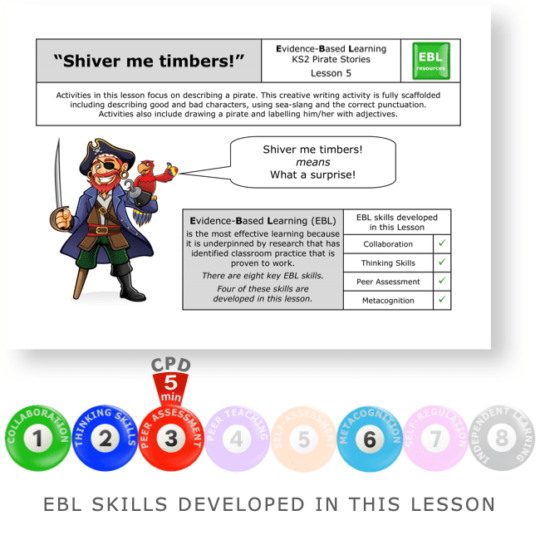
Shiver Me Timbers
£3.00 Add to basket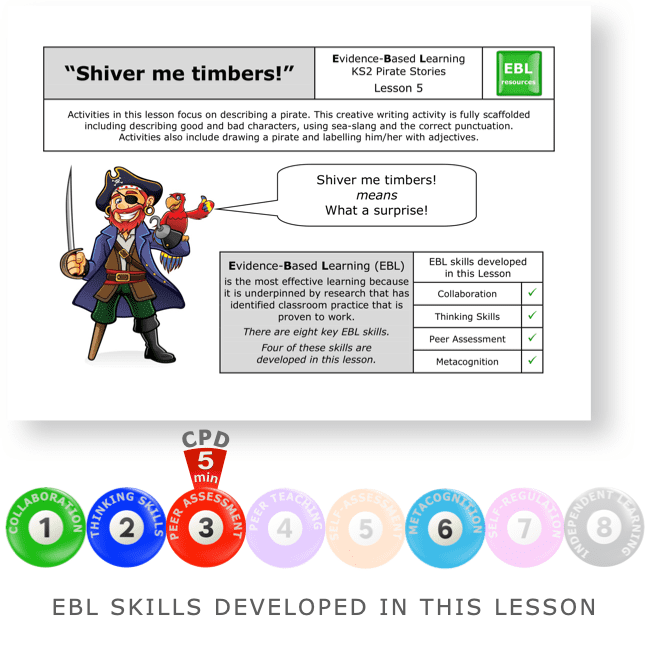 £3.00Add to basket
£3.00Add to basketActivities in this lesson focus on describing a pirate. This creative writing activity is fully scaffolded including describing good and bad characters, using sea-slang and the correct punctuation. Activities also include drawing a pirate and labelling him/her with adjectives.
There is a five-minute evidence-based CPD activity at the end of this lesson which will develop classroom teachers’ skill set. This CPD consists of a research extract on peer assessment with a five-minute activity based on this extract.
VIEW -
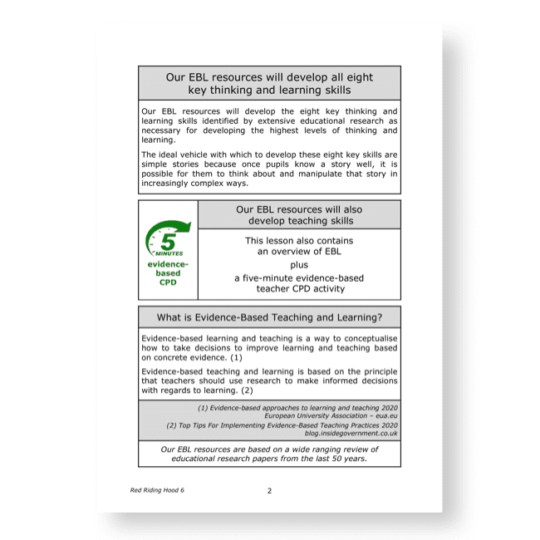
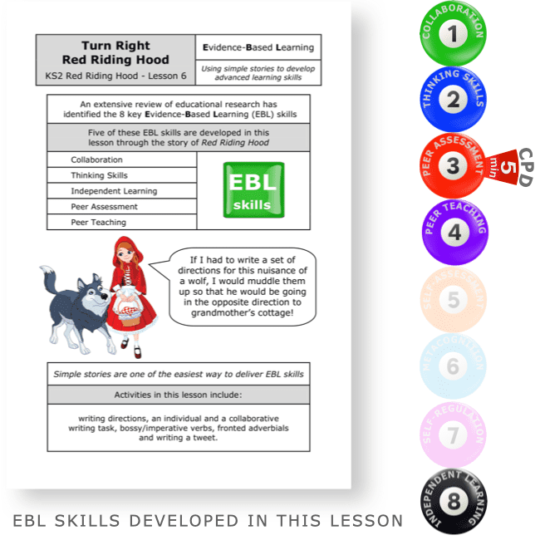
Turn Right Red Riding Hood
£3.00 Add to basket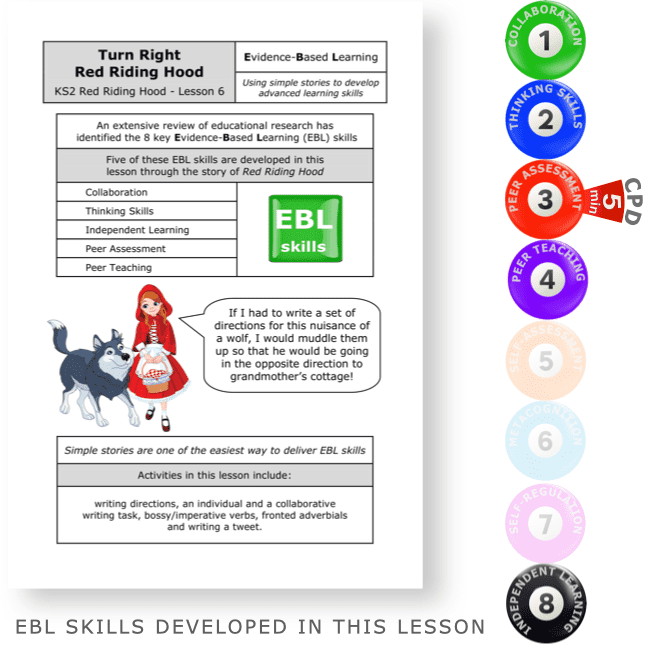 £3.00Add to basket
£3.00Add to basketActivities in this lesson include writing directions, an individual and a collaborative writing task, bossy/imperative verbs, fronted adverbials and writing a tweet.
There is a five-minute evidence-based CPD activity at the end of this lesson which will develop classroom teachers’ skill set. This CPD consists of a research extract on peer assessment with a five-minute activity based on this extract.
VIEW






Philipem (verified owner) –
We asked a.i. to evaluate this lesson. This is what it said:
Teaching English and Evidence-Based Learning Together
The King Midas lesson resource featured in this post is a gem for integrating the teaching of English skills and evidence-based learning (EBL) skills. Built around the familiar myth of King Midas, it allows you to teach reading, writing, comprehension, and critical thinking skills while also developing key EBL competencies like collaboration, peer assessment, and metacognition.
Why Use Myths to Teach EBL Skills?
Once students know a myth well, you can ask increasingly complex questions about the characters, plot, themes etc. This promotes higher order thinking. Myths also lend themselves well to collaborative activities like co-writing modernised versions. Students learn so much from explaining ideas to peers and critiquing each other’s work.
Key Features of the King Midas Resource:
– Differentiated questions on the myth to build comprehension
– Writing tasks like drafting tweets and modern myths
– Numerous chances for peer discussion and assessment
– Explicit teaching of what each EBL skill is and why it matters
– Self-review tasks that develop vital metacognitive skills
Integrating English and EBL learning this way allows students to apply critical and creative thinking skills to rich narrative texts. This engagement and sense of purpose accelerates both literacy and cognitive development.
With its appealing theme and ready-to-go lesson materials, this resource makes it easy to embed EBL strategies into your English teaching. I give it 5 stars for its inspirational design and multifaceted learning outcomes.